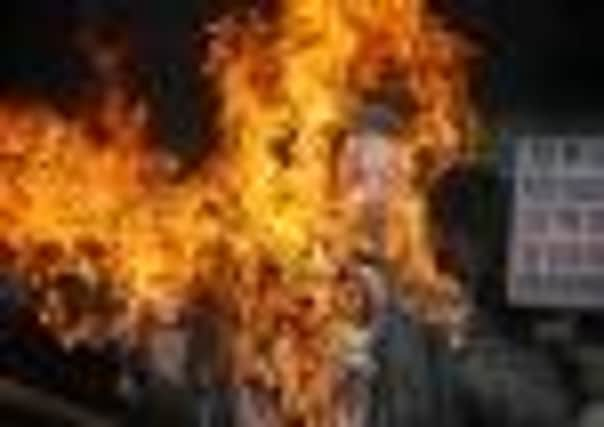Rocket launch ‘is next step for North Korea’


South Korea’s Defence Ministry said yesterday the satellite was orbiting normally at a speed of 4.7 miles per second, though it’s not known what mission it is performing. North Korean space officials said the satellite would be used to study crops and weather patterns.
A nuclear test would be the logical follow-up to the successful rocket launch, the analysts said. The North’s 2009 test came on 25 May, a month after a rocket launch.
Advertisement
Hide AdAdvertisement
Hide AdFor the North and its absolute ruler Kim Jong-un, the costs of the rocket programme and its allied nuclear weapons efforts – estimated by South Korea’s government at $2.8-$3.2 billion (£1.7-£1.9bn) since 1998 – and the risk of additional United Nations or unilateral sanctions are simply not part of the calculation.
“North Korea will insist any sanctions are unjust, and if sanctions get toughened, the likelihood of North Korea carrying out a nuclear test is high,” said Baek Seung-joo of the Korea Institute of Defence Analyses.
The UN Security Council is to discuss in the next few days how to respond to the launch, which it says is a breach of sanctions imposed in 2006 and 2009 that banned the isolated and impoverished state from missile and nuclear developments in the wake of its two nuclear weapons tests.
The endgame for the North is a formal peace treaty with Washington, diplomatic recognition and cash to help bolster its moribund economy.
“They might hope that the US will finally face the unpleasant reality and will start negotiations aimed at slowing down or freezing, but not reversing, their nuclear and missile programmes,” said Andrei Lankov, a North Korea expert at Kookmin University, in Seoul.
“If such a deal is possible, mere cognition is not enough. The US will have to pay, will have to provide generous ‘aid’ as a reward for North Koreans’ willingness to slow down or stop for a while.”
Recent commercially available satellite imagery shows that North Korea has rebuilt an old road leading to its nuclear test site in the mountainous north-east of the country. It has also shovelled away snow and dirt from one of the entrances to the test tunnel as recently as November.
At the same time as developing its nuclear weapons test site, the North has pushed ahead with what it says is a civil nuclear programme.
Advertisement
Hide AdAdvertisement
Hide AdAt the end of November, the International Atomic Energy Agency (IAEA) said the construction of a light water reactor was moving ahead and that North Korea had largely completed work on the exterior of the main buildings.
North Korea says it needs nuclear power to provide electricity, but has also boasted of its nuclear deterrence capability and has traded nuclear technology with Syria, Libya and probably Pakistan, according to US intelligence reports.
It terms its nuclear weapons programme a “treasured sword”.
The missile and the nuclear tests both serve as a “shop window” for Pyongyang’s technology and Mr Lankov said that the attractions for other states could rise if North Korea carries out a test using highly enriched uranium (HEU).